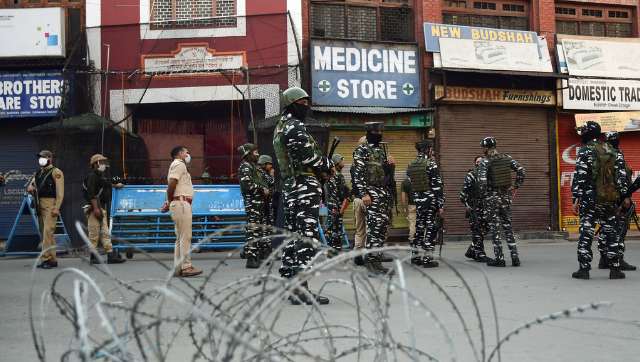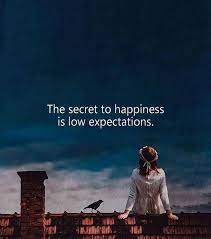One of the accusations against the Narendra Modi regime is that it is slowly falling back on the old corrupt ecosystem that ruled Kashmir by proxy all these years. For that, if Delhi has to press the ‘pause’ button — so be it
By: Sandip Ghose
The situation in Kashmir is grave and the BJP is facing its “we told you so” moment from both its critics and supporters. So far, the Union government has neither said nor done anything to inspire confidence. Meanwhile, we see heart-wrenching photographs flashed online on social media, newspapers and TV of innocent victims and Kashmiri Hindus returning from the valley to Jammu.
Abrogation of Article 370 in Jammu and Kashmir was not just redeeming an electoral promise but perhaps the boldest political decision of the Modi government in its second term — with far-reaching ramifications on both domestic and international front. While the revocation of special status for Kashmir yielded rich electoral dividends for the BJP with their core constituents in mainland India, the government also navigated through the geopolitical arena with remarkable elan. The Ministry of External Affairs (MEA) was successful in convincing the international community of its intentions and promise of holding elections in the foreseeable future. But it is the situation on the ground that showed little progress and left the most ardent well-wishers of the Modi government confused about its strategy.
Extended civic shutdown and internet blackout were lifted almost after a year of the Article 370 revocation. Politicians who were detained under house arrest were also released — pointing towards the restoration of normalcy. Some amount of reverse migration from Jammu to the Valley of non-Muslims started. Many of them work in government jobs in banks and schools. The improving law and order created the environment for pick-up in tourism post Covid. People from the rest of the country for whom Kashmir was virtually out of bounds started visiting not just Srinagar but also other tourist destinations of Gulmarg and Pahalgam. Even foreign tourists to India began to include Kashmir in their itinerary again. There was a dramatic fall in terror attacks and targeted killings. All these indicators were flashed as signs of the BJP’s Kashmir policy working.
With a change of governor — the Centre’s game plan was to hold elections by the end of 2022 following the delimitation exercise. The prime minister invited leaders of the Kashmiri political parties to Delhi. The message was clear that reinstatement of Article 370 was not on the table. The government would look at the restoration of statehood to Jammu and Kashmir (leaving Ladakh aside) if the politicians played ball. The old cast of actors from the Abdullahs’ National Conference (NCP), Muftis’ People’s Democratic Party (PDP) and other local outfits which had — realising their growing irrelevance — regrouped under the banner of Gupkar Alliance seemed to grudgingly fall in line reading the writings on the wall. Soon thereafter Amit Shah made a two-day visit to the Valley and forward areas. Recently the prime minister held a massive rally in Jammu. All these were seen as a build-up for the electoral exercise that was in the pipeline.
Against this backdrop comes the recent series of targeted killings, which have naturally unnerved non-Muslims living in the valley, especially those who had moved back recently. Though it is easy to discount these incidents as few and isolated, every life is invaluable. By these planned attacks, the terrorists and secessionist forces were able to drive home multiple objectives. First, it has injected fear among the Hindus in the valley which has the potential of triggering another exodus. Second, it has given opponents of the Modi government (which includes sections of the civil society who are critical of the present regime) ammunition to assail the Centre for a failed Kashmir strategy. Third, it has demoralised not just BJP loyalists but also Indians at large who were optimistic about Kashmir moving towards resolution. This puts the top echelons of Delhi in a spot. It cannot call this a temporary setback glossing over the loss of civilian lives.
One had to be exceptionally naïve to believe the revocation of Article 370 was a “silver bullet” that would solve the Kashmir problem at once. Most people realised that undoing the troubled legacy of 70 years will take time. But, did the government raise unrealistic expectations by hyping the move for domestic political considerations? This administration has a penchant for hyperbole. So, it probably did err on over-promising outcomes.
The road ahead was never smooth but now it has hit a rough patch. The choice is between braving through the hazards or taking a detour. Either way, the first objective should be to save the loss of innocent lives. Would that mean another heavy military clampdown bringing life to a standstill again? How will that impact the plans for elections for which preparations are underway? There are already rumours of these attacks being engineered (some even accusing the government of doing so) to put off the polls. If the elections are postponed, it might put the Indian government in a delicate spot with the international community, who had so far gone along with its assurances. The precipitation, therefore, seems to have been well-timed with the submission of the Delimitation Commission’s report.
Lobbyists in Delhi who went silent after August 2019 have become vocal once again calling for “political resolution”, by which they essentially bring the Gupkar Alliance back into the game. Nothing could be more retrograde, because it is the very same lot who have thrived on the Kashmir imbroglio over generations — often changing sides and spouting slogans of azadi and jihad while pledging loyalty to India. As a result, they had become discredited by the local population as was evident in the local body polls in 2018 and 2019. Giving these past masters of double-crossing a new lease of life will only take Kashmir back in time.
The Government of India has to think of unconventional solutions. In fact, one of the accusations against the present regime is falling back on the old corrupt ecosystem that ruled Kashmir by proxy all these years. For that, if Delhi has to press the ‘pause’ button — so be it. It cannot afford to repeat previous mistakes. The bigger question to be weighed, however, is if a solution to Kashmir exists without a military resolution on Pakistan-Occupied-Kashmir (POK). At some point, India will have to bite the bullet for correcting the historic mistake for which the LoC came to be demarcated.





